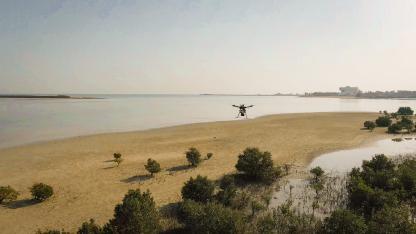Powering transformative conservation
The world stands at a critical juncture after decades of conservation efforts: the path we are on is still unsustainable. Climate change, biodiversity loss, pollution, and global health crises are all being compounded by growing global political and socio-economic instability.
If we do not act, they will have devastating, often irreversible effects on the planet's life-support systems—systems on which humanity's survival depends. The conservation community can no longer rely on conventional approaches alone - immediate action across every sector of society is urgently needed.
With only five years remaining until the 2030 deadline for the Paris Agreement, Sustainable Development Goals, and Global Biodiversity Framework, the IUCN Congress 2025 in Abu Dhabi emerges as a pivotal opportunity to elevate ambition, accelerate action and scale up collaborative solutions that address the needs of both nature and people, ensuring that sustainability efforts are equitable and just.
The Congress will tackle five critical themes, each driving the bold, transformative change needed to secure a sustainable future for both nature and humanity:

Scaling Up Resilient Conservation Action
In a world facing rapid change, conservation efforts must rise to meet escalating challenges. Achieving meaningful, large-scale biodiversity conservation requires a true step-change. We must accelerate and scale up the implementation of the global biodiversity framework, focusing on climate-resilient solutions at all levels—local, national, and global. By combining cutting-edge science with traditional knowledge, empowering communities, and fostering new leadership models, we can shape the transformation of financial flows, governance, and on-the-ground action to sustain biodiversity in the face of climate change and other threats.

Reducing Climate Overshoot Risks
To preserve life on Earth, we must take bold steps to change our climate trajectory, focusing on aggressive emissions mitigation and long-term adaptation strategies. Nature-based solutions like reforestation and wetland restoration are key but may lose efficiency as climate impacts grow. We need a diverse approach, including innovative solutions, while prioritizing biodiversity and vulnerable communities. By integrating advanced technologies, transforming education, and using adaptive management strategies, we can respond to the climate crisis with agility, creating a sustainable, resilient future for all.

Delivering on Equity
Achieving true conservation and environmental justice means placing the voices of Indigenous Peoples, women, youth, civil society, and rangers at the centre of action. Yet, conservation efforts must go beyond listening to actively reshape governance and laws to ensure equitable rights and address power imbalances in natural resource management. Rebuilding natural capital for future generations requires equity to become a foundation of conservation. By embedding fairness and the rule of law into our approach, we can safeguard biodiversity and ensure that communities thrive.

Transitioning to Nature-Positive Economies and Societies
Halting and reversing the decline of species and ecosystems remains critical but is not enough. We must shift toward Nature-positive economies that not only reduce the drivers of biodiversity loss but actively conserve, restore and regenerate ecosystems. Financial systems must align with the intrinsic value of nature, ensuring equitable outcomes and sustainable livelihoods, particularly for vulnerable communities. This transition requires transforming mindsets, policies, and practices, while governments and businesses must transparently measure and disclose their impact on nature. Bold, coordinated action will ensure that nature and society thrive together.

Disruptive Innovation and Leadership for Conservation
Transformative change in conservation can be driven by disruptive innovation, much like the breakthroughs we’ve seen in industry, agriculture, and technology. Artificial Intelligence, new financial mechanisms, groundbreaking laws, and innovative governance can reshape our current models. By empowering communities, supporting youth-led initiatives, and transforming education, we can prepare the next generation to lead. Disruptive innovation challenges the status quo and opens new pathways to restore ecosystems, protect biodiversity, and build climate resilience. Bold, inclusive leadership is critical, and time is running out for the radical change required.